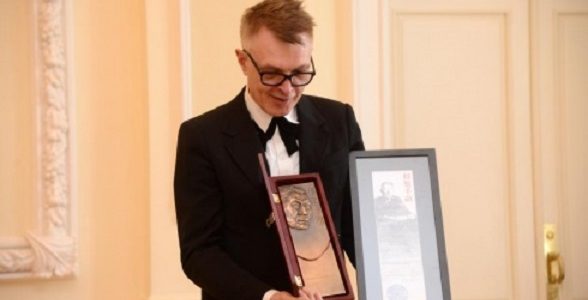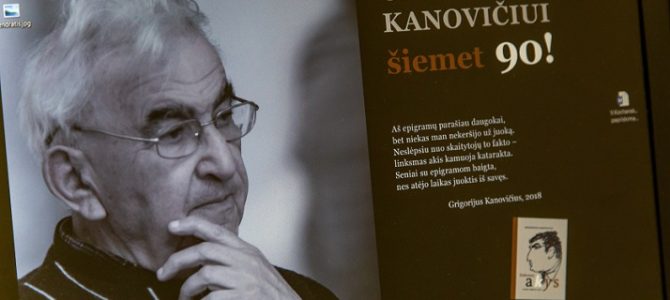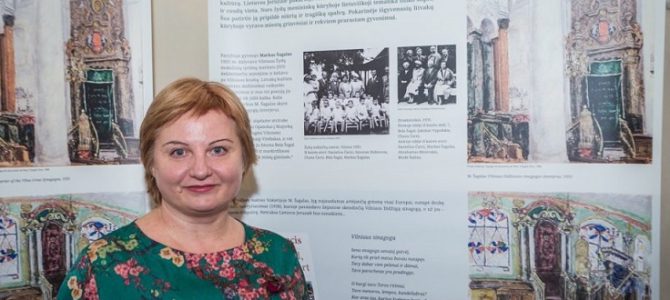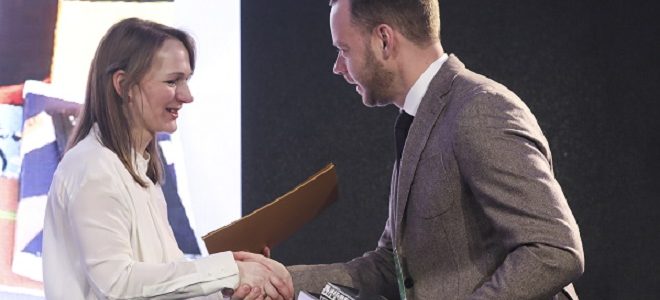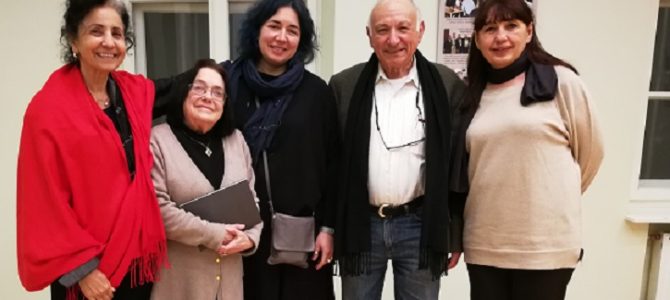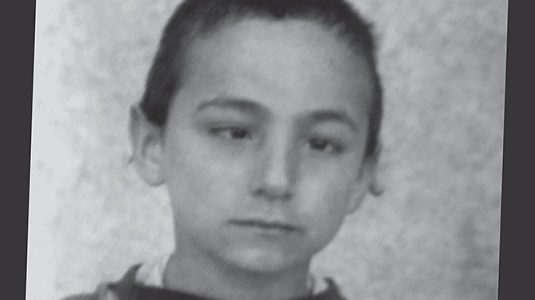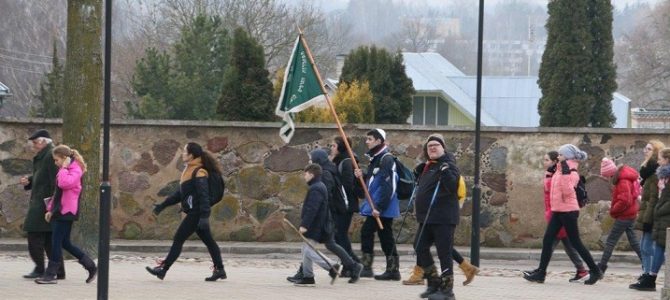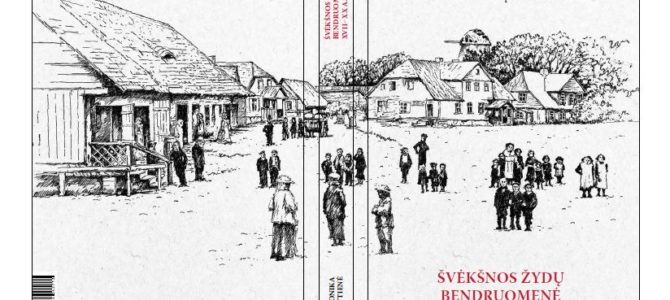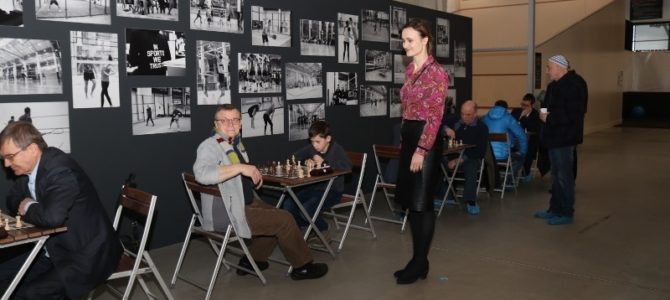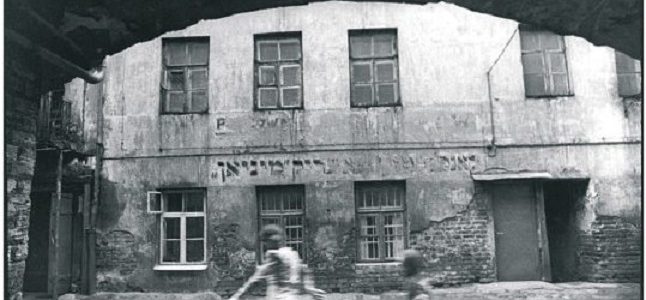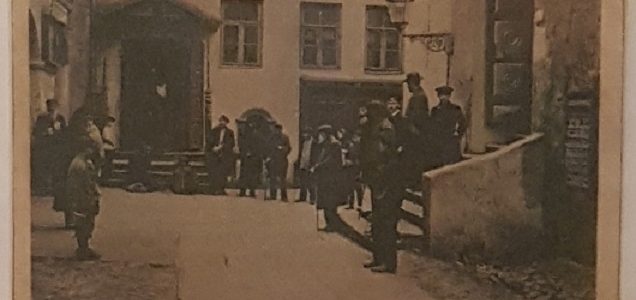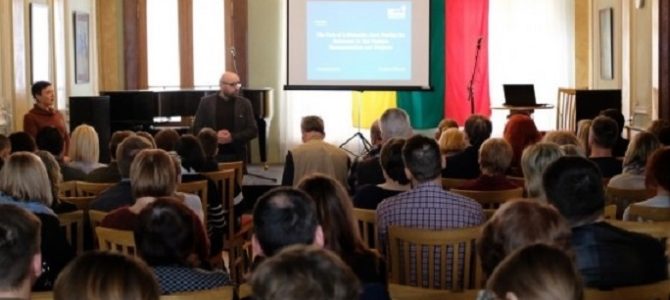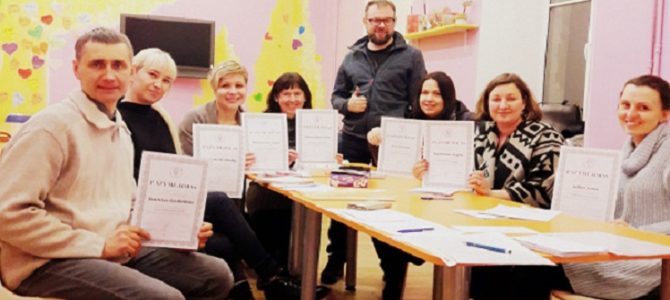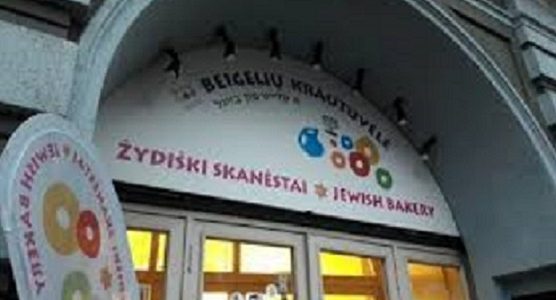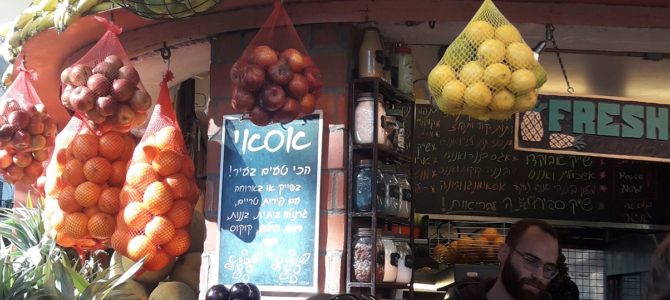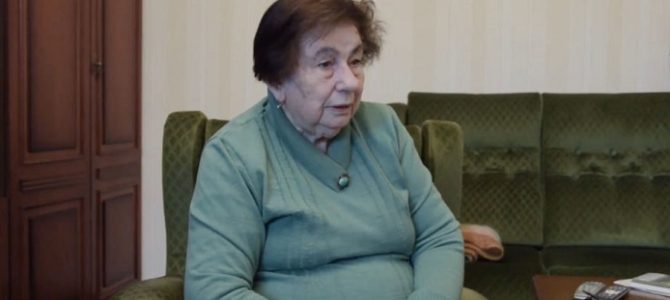kaunas.kasvyksta.lt
The Sugihara Foundation/Diplomats for Life awarded director Gintaras Varnas Tolerant Person of the Year for 2018 and presented their Leonidas Donskis prize to publicist Pranas Morkus at the Catholic Theology Cathedral of Vytautas Magnus University in Kaunas February 24, 2019.
Varnas was selected for the prize for his search for alternative language for theater and plays, especially in his latest works, Nathan the Wise and Ghetto, performed at the Kaunas State Drama Theater.
Varnas said his first reaction was complete surprise. “When I’m working I never think about these kind of things,” he said, adding he experiences a conflict in contemporary theater which often becomes nothing more than a way to make an audience laugh. “I am glad real theater is still needed, theater which discusses uncomfortable things, which speaks the truth,” Varnas said as he accepted the prize.



















